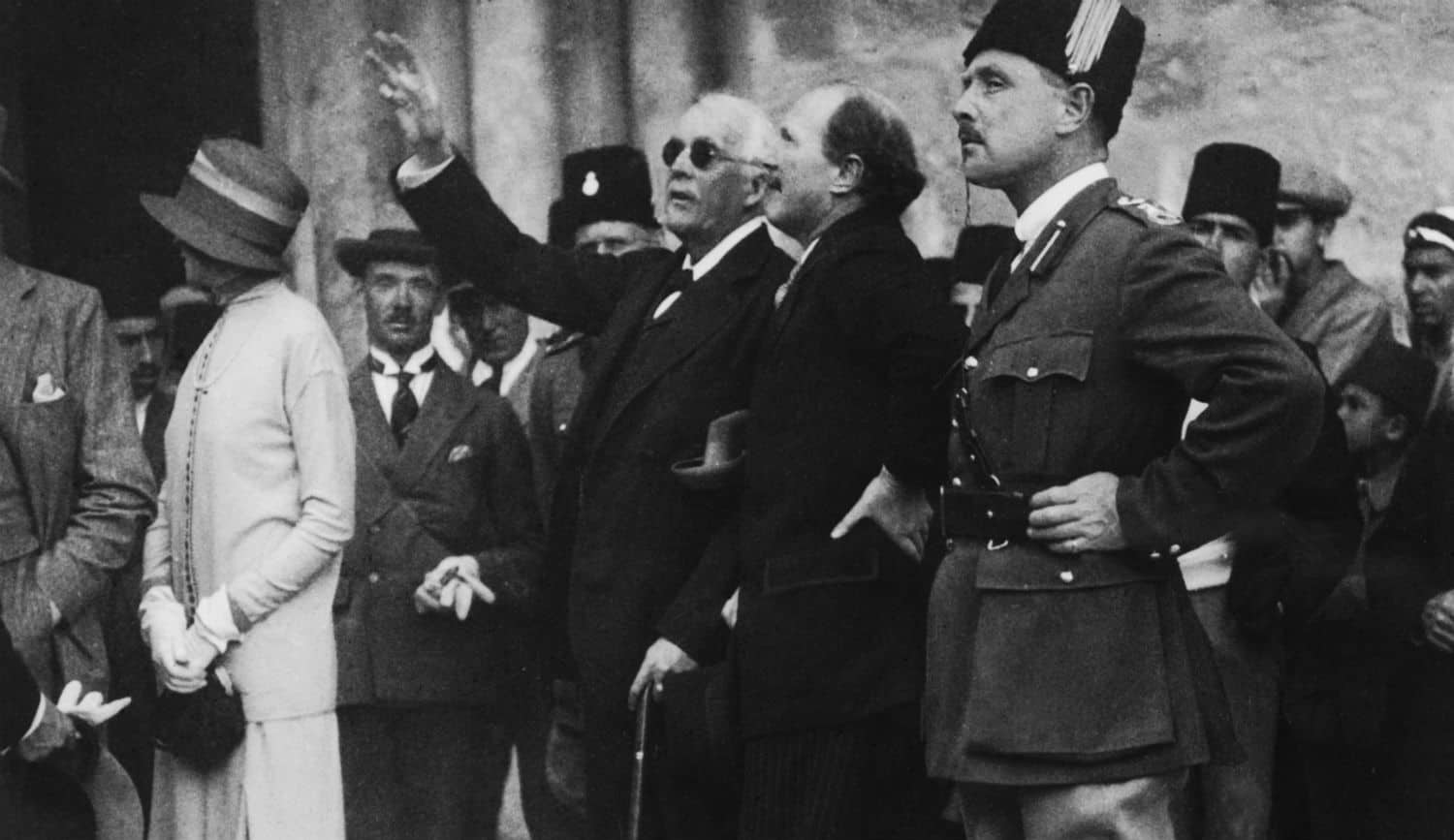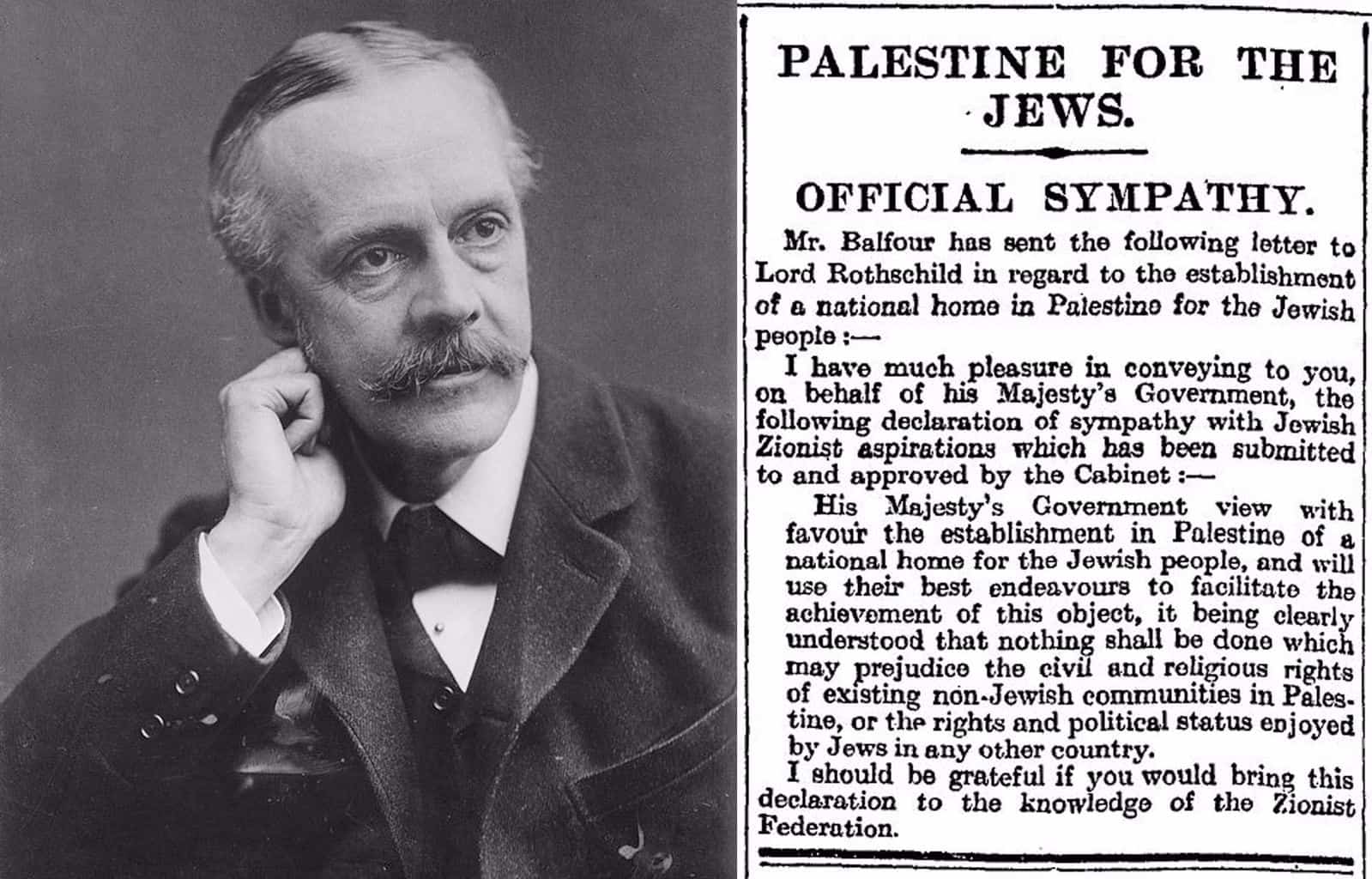By Dr. Michael Lejman
On November 2nd, 1917, the British government took a quiet step that changed the course of world history and the Jewish people. Perhaps the Zionist movement’s firm commitment and early settlement in Palestine was an inevitable outcome of a determined generation. However, the history of the state of Israel is linked to that of European war and imperial politics. The Balfour Declaration, a brief communication openly expressing the British government’s support for a Jewish homeland in Palestine, helped establish those connections. Other commitments from the British government of the First World War would promote many of the tensions so fundamental to Israel’s relations with its neighbors.
While a momentous statement by the British government, openly supporting the nationalist ambitions of an ethnic and religious minority distributed across Europe, North Africa, and the Middle East, the Balfour Declaration was overshadowed by the First World War. That global conflict, which led to the death of over fifteen million people worldwide, also serves as the context for British support of a Jewish homeland.
Following a change in government, Lord Arthur Balfour, the new British foreign secretary under Prime Minister Lloyd George, officially addressed Baron Lionel Walter Rothschild, a British Zionist peer, expressing the government’s support for a Jewish homeland in Palestine. This was intended as a public statement and had been carefully crafted for months to include an ambiguous declaration of support for the rights of non-Jewish Palestinians and to use the term “national home” rather than “Jewish state”. The final text reads:
“His Majesty’s Government views with favour the establishment in Palestine of a national home for the Jewish people, and will use their best endeavours to facilitate the achievement of this object, it being clearly understood that nothing shall be done which may prejudice the civil and religious rights of existing non-Jewish communities in Palestine, or the rights and political status enjoyed by Jews in any other country.”

For the British – according to a number of historians such as James Gelvin and Jonathan Schneer, as well as the recollections of Lloyd George himself – this was an to attempt to court Jewish opinion in the United States, Russia, and Germany at a time when the war still hung in the balance. In addition, the British hoped to further weaken the Ottoman Empire’s hold on the region. This was part of a broader strategy of encouraging uprisings in Ottoman territory throughout the Middle East. However, the Declaration was also a new direction that contradicted previous commitments.
Previously the British had supported Arab leaders, most famously through the expeditions of T.E. Lawrence, in their fight for independence from the Ottoman Empire. The McMahon-Hussain correspondence between the British high commissioner of Egypt and the Sharif of Mecca reflected earlier British policy of supporting a large Arab state with, at most, international administration of Jerusalem. Another piece of Great War diplomacy, the Sykes-Picot secret agreement specified direct European control of the region in a secret deal that was only revealed thanks to the upheavals of the Russian Revolution.
Over time, British public opinion grew mixed and future governments vacillated between a commitment to the Balfour Declaration and suspicions towards Zionism as the fall of the Ottoman Empire accelerated Jewish immigration. While confusion regarding British promises and future British policy contributed to the tensions that persist to this day in the region, the Balfour Declaration was directly incorporated into the language of the British Mandate. The Declaration represents a vital step in Israeli history that helped bring about the Third Aliyah and the arrival of the Halutzim (early pioneers).
Dr. Michael Lejman is a history instructor at Arkansas State University Mid-South
For more on the Balfour Declaration, check out these resources:
Mosaic Magazine- The Forgotten Truth About the Balfour Declaration
Jerusalem Center for Public Affairs- The Historical Significance of the Balfour Declaration
Newsweek Magazine- Israel’s President: Jews and Arabs are Destined- Not Doomed- To Love Together
Tablet Magazine- Podcast: Dear Lord Rothschild
Jerusalem Post- Center Field: We Don’t Need No Balfour Declarations…or Celebrations
